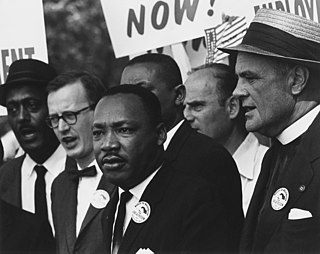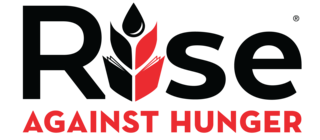
Human nutrition deals with the provision of essential nutrients in food that are necessary to support human life and good health. Poor nutrition is a chronic problem often linked to poverty, food security, or a poor understanding of nutritional requirements. Malnutrition and its consequences are large contributors to deaths, physical deformities, and disabilities worldwide. Good nutrition is necessary for children to grow physically and mentally, and for normal human biological development.

In politics, humanitarian aid, and the social sciences, hunger is defined as a condition in which a person does not have the physical or financial capability to eat sufficient food to meet basic nutritional needs for a sustained period. In the field of hunger relief, the term hunger is used in a sense that goes beyond the common desire for food that all humans experience, also known as an appetite. The most extreme form of hunger, when malnutrition is widespread, and when people have started dying of starvation through lack of access to sufficient, nutritious food, leads to a declaration of famine.

Starvation is a severe deficiency in caloric energy intake, below the level needed to maintain an organism's life. It is the most extreme form of malnutrition. In humans, prolonged starvation can cause permanent organ damage and eventually, death. The term inanition refers to the symptoms and effects of starvation. Starvation by outside forces is a crime according to international criminal law and may also be used as a means of torture or execution.

Malnutrition occurs when an organism gets too few or too many nutrients, resulting in health problems. Specifically, it is a deficiency, excess, or imbalance of energy, protein and other nutrients which adversely affects the body's tissues and form.

Textured or texturized vegetable protein (TVP), also known as textured soy protein (TSP), soy meat, or soya chunks, is a defatted soy flour product, a by-product of extracting soybean oil. It is often used as a meat analogue or meat extender. It is quick to cook, with a protein content comparable to some meats.

The Mid Day Meal Scheme is a school meal programme in India designed to better the nutritional status of school-age children nationwide. The scheme has been renamed as PM-POSHAN Scheme. The programme supplies free lunches on working days for children in government primary and upper primary schools, government aided Anganwadis, Madarsa and Maqtabs. Serving 120 million children in over 1.27 million schools and Education Guarantee Scheme centres, the Midday Meal Scheme is the largest of its kind in the world.

A school meal is a meal provided to students and sometimes teachers at a school, typically in the middle or beginning of the school day. Countries around the world offer various kinds of school meal programs, and altogether, these are among the world's largest social safety nets. An estimated 380 million school children around the world receive meals at their respective schools. The extent of school feeding coverage varies from country to country, and as of 2020, the aggregate coverage rate worldwide is estimated to be 27%.

Fome Zero is a program of the Government of Brazil introduced by President Luiz Inácio Lula da Silva in 2003, with the goal to eradicate hunger and extreme poverty in the country. It followed the lead of projects that had already put into practice by the Fernando Henrique Cardoso administration, which was named Bolsa Escola, and which had been established in 1995.

Kids Against Hunger is a nonprofit organization owned by Richard Proudfit, up until his death on November 14, 2018. It was established with the mission to significantly reduce the number of hungry children in the United States and to feed starving children throughout the world. This is being achieved by getting volunteers involved, and by setting up food packaging satellites in the US, and through partnerships with humanitarian organizations worldwide – enabling Kids Against Hunger to deliver its specially formulated rice-soy casserole to starving children and their families in over 60 countries. The Kids Against Hunger network currently includes about 100 food packaging centers with the goal to establish 500 packaging centers in all 50 U.S. states.

Diet for a Small Planet is a 1971 book by Frances Moore Lappé. It was a bestseller in the West, and argues for the potential role of soy as a superior form of protein. It demonstrates the environmental impact of meat production and a contributor to global food scarcity. She argued for environmental vegetarianism—practising a vegetarian lifestyle out of concerns over animal-based industries and the production of animal-based products.

Clifford E. Clinton was a California restaurateur who founded Meals for Millions, one of two parent organizations of Freedom from Hunger, in 1946. Clifford E. Clinton was also owner of a cafeteria-style restaurant chain named Clifton's.

Soy protein is a protein that is isolated from soybean. It is made from soybean meal that has been dehulled and defatted. Dehulled and defatted soybeans are processed into three kinds of high protein commercial products: soy flour, concentrates, and isolates. Soy protein isolate has been used since 1959 in foods for its functional properties.
Despite India's 50% increase in GDP since 2013, more than one third of the world's malnourished children live in India. Among these, half of the children under three years old are underweight.

Rise Against Hunger is an international hunger relief non-profit organization that coordinates the packaging and distribution of food and other aid to people in developing nations. It was founded as Stop Hunger Now in 1998 by Ray Buchanan and John Hewitt. Rise Against Hunger mobilizes more than 400,000 volunteers each year to package meals for people in need around the globe.
Hunger Task Force, Inc. is a non-profit, anti-hunger public policy organization in Milwaukee, Wisconsin. Hunger Task Force works to end hunger in Milwaukee County, Wisconsin by providing direct food delivery services, and works to end future hunger by advocating for fair and responsible administration of federal nutrition assistance programs.

The Healthy, Hunger-Free Kids Act of 2010 is a federal statute signed into law by President Barack Obama on December 13, 2010. The law is part of the reauthorization of funding for child nutrition. It funded child nutrition programs and free lunch programs in schools for 5 years. In addition, the law set new nutrition standards for schools, and allocated $4.5 billion for their implementation. The new nutrition standards were a centerpiece of First Lady Michelle Obama's Let's Move! initiative to combat childhood obesity. In FY 2011, federal spending totaled $10.1 billion for the National School Lunch Program. The Healthy, Hunger-Free Kids Act allows USDA, for the first time in 30 years, opportunity to make real reforms to the school lunch and breakfast programs by improving the critical nutrition and hunger safety net for millions of children. Healthy, Hunger-Free Kids Act and Michelle Obama were a step in transforming the food pyramid recommendation, which has been around since the early 1990s, into what is now known as "MyPlate".

There were 735.1 million malnourished people in the world in 2022, a decrease of 58.3 million since 2005, despite the fact that the world already produces enough food to feed everyone and could feed more than that.
Fameal is a general word for a food product, used by Non-governmental organizations (NGOs), in programs to feed the hungry as a part of the Agricultural Act of 1949. The food product is made up of a wheat-soy meal blend or a cornmeal-soy blend. This food is distributed, often aided by volunteers, in the Caribbean and West Africa.

Hunger in the United States of America affects millions of Americans, including some who are middle class, or who are in households where all adults are in work. The United States produces far more food than it needs for domestic consumption—hunger within the U.S. is caused by some Americans having insufficient money to buy food for themselves or their families. Additional causes of hunger and food insecurity include neighborhood deprivation and agricultural policy. Hunger is addressed by a mix of public and private food aid provision. Public interventions include changes to agricultural policy, the construction of supermarkets in underserved neighborhoods, investment in transportation infrastructure, and the development of community gardens. Private aid is provided by food pantries, soup kitchens, food banks, and food rescue organizations.

In the United States, school meals are provided either at no cost or at a government-subsidized price, to students from low-income families. These free or subsidized meals have the potential to increase household food security, which can improve children's health and expand their educational opportunities. A study of a free school meal program in the United States found that providing free meals to elementary and middle school children in areas characterized by high food insecurity led to increased school discipline among the students.

















